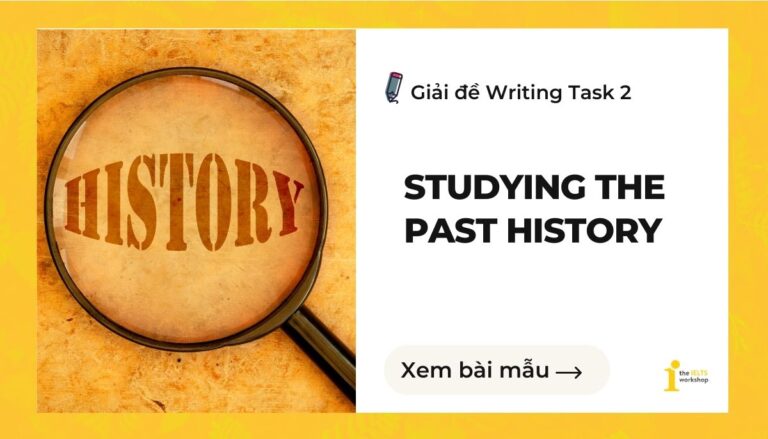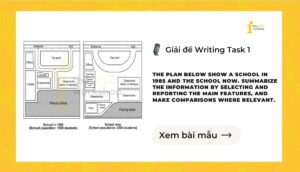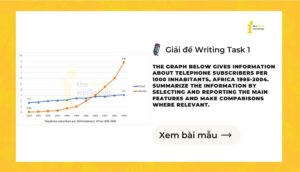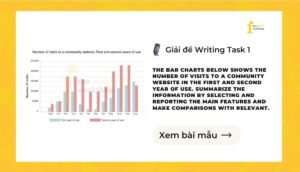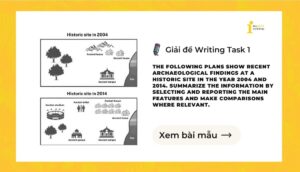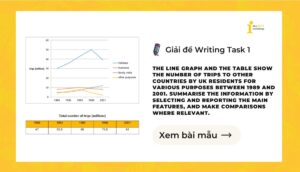Trong chuyên mục Giải đề IELTS Writing Task 2 tuần này, cô Lê Phương Anh từ The IELTS Workshop sẽ hướng dẫn bạn cách xử lý đề bài liên quan đến chủ đề Studying the past history. Bài viết không chỉ giúp bạn hiểu rõ cách phân tích và phản biện hai quan điểm trái ngược mà còn chỉ ra phương pháp trình bày ý tưởng một cách logic để tối ưu hóa điểm số.
1. Phân tích đề bài Studying the past history
1.1. Đề bài Studying the past history | IELTS Writing Task 2
Some people think history has nothing or little to tell us, but others think that studying the past history can help us better understand the present. Please discuss the two views and give your own opinion.
(Một số người cho rằng lịch sử không có gì hoặc chỉ có rất ít điều để dạy chúng ta, nhưng những người khác lại nghĩ rằng việc nghiên cứu lịch sử có thể giúp chúng ta hiểu rõ hơn về hiện tại. Hãy thảo luận cả hai quan điểm và đưa ra ý kiến của bạn.)
1.2. Phân tích đề bài
Dạng đề: Discussion + Opinion
Từ khóa chính:
- history (lịch sử)
- nothing or little to tell us (không hữu ích, ít giá trị)
- studying the past history (nghiên cứu lịch sử quá khứ)
- understand the present (hiểu hiện tại)
Xem thêm: Học cách làm dạng Balanced Opinion Essay trong IELTS Writing
1.3. Dàn bài chi tiết
Introduction
- Paraphrase đề bài, đưa ra hai quan điểm trái chiều, nêu rõ ý kiến cá nhân đồng ý với việc lịch sử có giá trị quan trọng
Body Paragraph 1: Quan điểm: Lịch sử ít giá trị thực tế
- Lý do 1: Các vấn đề hiện đại rất khác so với quá khứ. Ví dụ: Các dịch bệnh chết người trước đây (malaria, plague) nay đã được kiểm soát; giờ đây mối quan tâm lớn hơn là an ninh mạng, biến đổi khí hậu, ô nhiễm.
- Lý do 2: Quá chú trọng lịch sử có thể làm chậm tiến bộ sáng tạo. Ví dụ: Công ty công nghệ phát triển phần mềm mới sẽ có lợi hơn khi nghiên cứu khoa học máy tính hiện đại thay vì các lý thuyết cũ.
Body Paragraph 2: Quan điểm: Lịch sử có giá trị quan trọng
- Lý do 1: Các cấu trúc xã hội, chính trị, văn hóa hiện tại bắt nguồn từ lịch sử. Ví dụ: Phân tích nguyên nhân khủng hoảng kinh tế trong quá khứ giúp chính phủ và doanh nghiệp tránh sai lầm tương tự.
- Lý do 2: Lịch sử các cuộc xung đột giúp hiểu và giải quyết căng thẳng hiện tại. Ví dụ: Nhận thức về sự tàn phá của hai cuộc chiến tranh thế giới góp phần ngăn chặn xung đột và thúc đẩy ngoại giao.
Conclusion
- Khẳng định lại rằng lịch sử giúp con người hiểu hiện tại và duy trì xã hội hòa bình, trật tự.
2. Bài mẫu
It is believed that what history informs us hold little to no significance while others argue that the subject allows us to grasp the reality in the present better. Although it is true that history is only the retelling of past events, I am of the opinion that the implementation of what we can learn about the past is of great importance.
On the one hand, it is understandable as to why people consider that history has limited value due to the events and circumstances no longer existing. Firstly, modern society faces challenges vastly different compared to the previous decades and centuries. For example, lives used to be threatened by deadly diseases such as malaria, syphilis and plague, which can now be treated by antibiotics. People nowadays are more concerned about contemporary problems like digital security, climate change and pollution and the information derived from history might not be adequate to address them effectively. Secondly, dwelling on history can be a distraction from tackling real current issues with innovative solutions. For instance, when a technology company develops a new software, they can benefit more from cutting-edge computer science than revising early computing theories.
On the other hand, I concur with the later view that history can provide essential insights into present-day realities. One major reason is that many social, political and cultural structures are deeply rooted in historical developments. Hence, the knowledge of these origins builds the foundation for interpretation of current events. To illustrate, by analysing the causes of past economic crisis, policy makers and businesses are able to devise strategies to avoid similar mistakes. Another factor is that past conflicts help us understand long-standing tensions between nations and communities, fostering mutual understanding and peacebuilding efforts. To give an example, learning of the widespread devastation the two world wars helps deter countries from having disputes and form diplomatic relations.
In conclusion, despite the rationale for the belief that history is the outdated record of bygone times, I believe that the study of the past is highly relevant in comprehending the present and plays a role in maintaining an orderly and peaceful society.
Sample by Le Phuong Anh – IELTS Teacher at The IELTS Workshop
3. Từ vựng
- grasp the reality in the present: hiểu rõ thực tế hiện tại
- the retelling of past events: sự thuật lại các sự kiện quá khứ
- contemporary problems: các vấn đề đương đại
- cutting-edge computer science: khoa học máy tính tiên tiến
- deeply rooted in historical developments: bắt nguồn sâu xa từ các sự kiện lịch sử
- foundation for interpretation: nền tảng cho việc diễn giải
- mutual understanding: sự thấu hiểu lẫn nhau
- peacebuilding efforts: nỗ lực xây dựng hòa bình
- bygone times: thời đã qua
Xem thêm: Giải đề IELTS Writing Task 2: History and culture
Tạm kết
Bài viết từ cô Lê Phương Anh kỳ vọng đã mang đến cho bạn một góc nhìn rõ ràng về cách triển khai lập luận trong chủ đề Studying the past history, giúp bạn rèn luyện khả năng phân tích và viết bài một cách mạch lạc, thuyết phục.
Đừng quên theo dõi chuyên mục [Cập nhật liên tục] Tổng hợp đề thi IELTS Writing 2025 kèm bài mẫu và Bài mẫu Writing Task 2 để cập nhật nguồn tài liệu chất lượng, củng cố thêm kiến thức cũng như nâng cao kỹ năng làm bài.
Ngoài ra, bạn có thể tham gia ngay chương trình HỌC IELTS MIỄN PHÍ độc quyền trên website The IELTS Workshop để trực tiếp luyện tập cùng đội ngũ giáo viên giàu kinh nghiệm và nhận hướng dẫn chi tiết cho từng dạng đề thi.


